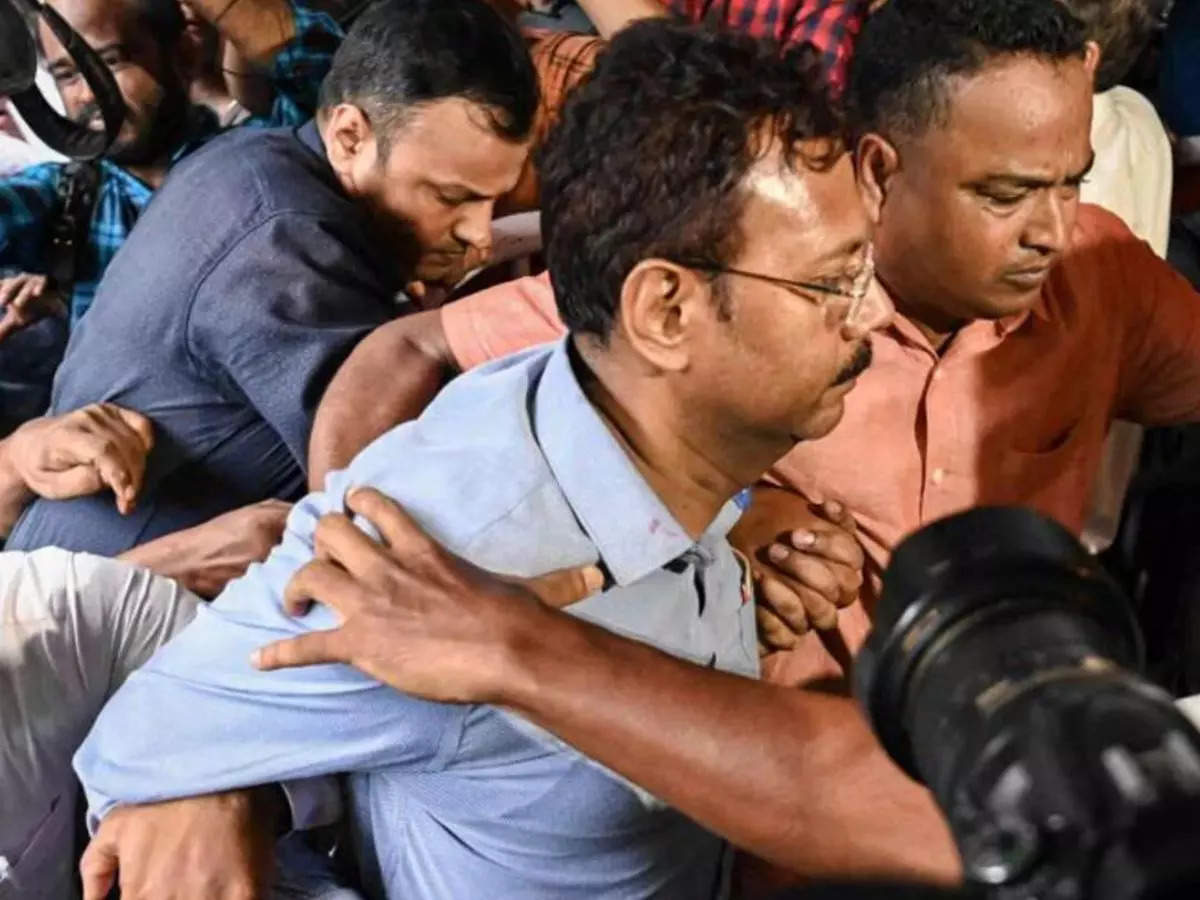
New Delhi: Sandip Ghosh, the former principal of RG Kar Medical College and Hospital, was remanded to eight days’ CBI custody until September 10 by a special court on charges of graft and financial irregularities. The CBI, investigating these charges, revealed that Ghosh was allegedly part of a “bigger nexus.” During his court appearance, Ghosh faced public outrage, including physical assaults both inside and outside the courtroom.
Ghosh was arrested on Monday in connection with the corruption case. Alongside him, three other suspects – Afsar Ali Khan, Ghosh’s security guard; Biplab Singha, the owner of Maa Tara Traders, a vendor for RG Kar; and Suman Hazra, a medical shop owner in Howrah accused of selling recycled medicines from the hospital – were also taken into custody. They were all remanded to CBI custody until September 10.
CBI counsel Rambabu Kanojia emphasised to the court that these four accused were integral to a larger network involved in the corruption.
“There is a larger nexus, which has to be probed,” Kanojia stated.
As Ghosh and the other suspects were being transported from CBI’s anti-corruption branch office at Nizam Palace on AJC Bose Road around 3:30 PM, they encountered significant public unrest. Hundreds of people, including employees from nearby government and private offices, gathered to protest, shouting slogans like “Chor, chor” and “Justice for Tilottama.”
Upon arriving at Alipore, an even larger group of demonstrators awaited them, chanting “Dhik-dhik dhikkar (Shame! Shame!)” along with various abuses. The CBI team quickly escorted Ghosh and the others into the courtroom, shutting the main entrance to prevent protesters from storming in.
Inside the courtroom, the tension escalated further. A group of women lawyers verbally abused Ghosh and one delivered a sharp slap to his face. As the other defendants entered with their faces covered, a section of the lawyers demanded their faces be uncovered, leading to louder commotions.
Court proceedings commenced around 4:05 PM, fifteen minutes after the accused had entered the courtroom. Judge Sujit Kumar Jha repeatedly demanded order, ultimately having to call Ghosh and the others closer to his dais to shield them and calm the situation.
The CBI has charged the four on multiple counts: illegal gratification by a government servant (Section 7, Prevention of Corruption Act), public servant committing criminal misconduct (Section 13 clause 2 of Prevention of Corruption Act), cheating (Section 420 IPC), criminal breach of trust (Section 409 IPC), criminal conspiracy (Section 120B), and forgery of a document (Section 467 IPC), among others.
Kanojia called for a 10-day custody, citing the extensive nature of the offense and the severity of the crime.
“The ambit of the offence is big,” Kanojia said. “We need to collect further evidence. Moreover, there could be some other offence that may surface during investigation.”
Ghosh’s attorney, Zohaib Rauf, argued for a shorter custody period, highlighting Ghosh’s cooperation with the investigation so far.
“He had gone to the CBI office even on Monday, when he was arrested. He had attended the interrogation each day he was sent a summons. The court is requested to consider the period of detention,” Rauf stated.
Despite Ghosh’s plea, the court did not entertain bail petitions for him or the other defendants. As the accused were being escorted out, CBI called for additional reinforcements. Ten more CRPF personnel formed a protective cordon, but as they exited the court, a protester managed to break through and struck Ghosh on the back of his head before he was quickly pushed into the CBI vehicle.
Protesters continued to demand broader investigations into Ghosh’s role.
“CBI has arrested him in the financial fraud case, but we want them to probe and question him in the rape and murder of the doctor as well,” stated one protester. “He cannot shrug off responsibility for the crime. We want justice for the doctor and we want CBI to continue questioning him and find all other culprits.”
The public’s discontent underscores the gravity of the corruption allegations and the associated crimes, indicating a deep-seated demand for justice and accountability.







